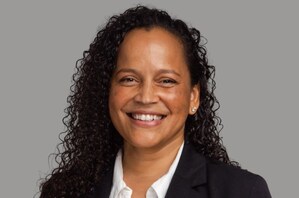International Partnerships and Knowledge Sharing Help Bhutan Continue on the Path to Advanced Internet Capabilities
Internet2/NSRC program brings Bhutanese IT professionals to United States to network with global research and education leaders
WASHINGTON, April 22, 2015 /PRNewswire/ -- Internet2 and the Network Startup Research Center (NSRC)—both U.S.-based non-profits working to advance technology around the world—are working with technology leaders in Bhutan to bring ultra-high-speed network access to the research and education (R&E) community in the mountainous country in the heart of the Himalayan region.
Bhutan's current commercial Internet capabilities are at an impressive 5 gigabits per second of capacity for a nation of 740,000. Therefore, the NSRC, which helps design and deploy advanced IT infrastructure in developing nations, has been working with engineers and government leaders in Bhutan to help bring the country's R&E community up to parity as they connect to the world's top National Research and Education Networks (NRENs)—the likes of which operate at 100 gigabits per second and up to 8 terabits of capacity.
Internet2, which operates the United States' largest and fastest R&E network, is supporting the effort by partnering with the NSRC to bring two project officers from Bhutan to its annual meeting, the Internet2 Global Summit, next week in Washington, D.C. Here, they will get the opportunity to meet directly with their counterparts at other NRENs, universities and advanced technology organizations to share knowledge and experiences and gain resources and contacts for advancing their goals.
Bhutan's Department of IT and Telecom, Ministry of Information and Communications is leading the development of Bhutan's NREN—called Druk Research and Education Network (DrukREN)—in collaboration with the Royal University of Bhutan (RUB), with funding from the Asian Development Bank under the South Asia Subregional Economic Cooperation Information Highway (SASEC IH) Project and with technical assistance from NSRC. Karma Jamyang, ICT officer with the Department of IT and Telecom, Ministry of Information and Communications, is an assistant project manager of the SASEC IH Project and is working on the development of Bhutan's NREN. Sonam Wangmo, a senior research and communications officer at RUB, will manage and operate DrukREN once it's established.
Both will be at the Global Summit as part of the Internet2/NSRC Fellowship program, now in its fourth year. The program has brought more than 25 fellows—mainly network engineers, technologists and project managers—from NSRC-supported countries to Internet2 meetings to connect with leaders from around the world who are currently operating successful NRENs or other advanced technology programs.
Commercial Internet was introduced to Bhutan in 1999. Today, NSRC is helping get the first generation DrukREN up and running by providing resources such as campus network design and training. This will enable the Bhutanese academic community to connect to the fourth phase of the Trans Eurasia Information Network (TEIN) so they can more effectively engage in global research collaborations using applications such as real-time online teaching and telemedicine.
"Bhutan is a developing country," says Jamyang. "For a country like ours, human resources are always a challenge. In order for DrukREN to be sustainable, not only do we need financial support from the government, we also need capable local network engineers to operate and maintain the network." This is where the Internet2/NSRC Fellowship program is aiming to help. Jamyang says the knowledge transfer between experienced NREN developers will be invaluable to his and Wangmo's work to establish DrukREN—from both an engineering and business perspective.
"I am looking forward to meeting with network engineers from around the world to exchange experiences," he says. "I also hope to gain timely insights on the business models that have been adopted by other NRENs to operate, maintain and sustain their respective networks."
Edward Moynihan, director of global programs at Internet2, says the knowledge exchange that takes place at Internet2 meetings is valuable for all attendees, but that the Internet2/NSRC Fellows in particular get a unique experience and access to perspectives that they otherwise may not have. "At Internet2, we regularly talk about the power of collaboration to advance the R&E community's technology capabilities," he says. "The Internet2/NSRC Fellowship program is the perfect example of the community working together to share knowledge that leads to advanced technologies, better research capabilities and higher-quality educational opportunities for countries in all parts of the world."
Jamyang and Wangmo will present about their work in a Global Summit session Wednesday, April 29 from 3 – 4 p.m. at the Renaissance Downtown Washington, D.C. Hotel.
EDITOR'S NOTE: Interviews and images are available to members of the media upon request. Reporters interested in obtaining a press badge for the Global Summit should contact Angela Stark, [email protected] or 202.803.8996.
About Global Summit
The Global Summit is Internet2's annual meeting that showcases how the research and education (R&E) community is transforming the way research and scholarship are conceived and conducted. The 2015 meeting, taking place April 26-30 in Washington, D.C., will focus on the advancement of research capabilities through collaborative innovations in IT infrastructure and applications. Through strong academic leadership, perceptive global engagement and advanced innovations in networking and services, the Internet2 community continues its legacy of leading the way in expanding and transforming the global R&E community's capabilities to advance research and academic excellence.
About Internet2 Internet2® is a member-owned advanced technology community founded by the nation's leading higher education institutions in 1996. Internet2 provides a collaborative environment for U.S. research and education organizations to solve common technology challenges, and to develop innovative solutions in support of their educational, research, and community service missions. Internet2 also operates the nation's largest and fastest, coast-to-coast research and education network, in which the Network Operations Center is powered by Indiana University. Internet2 serves more than 90,000 community anchor institutions, 260 U.S. universities, 65 government agencies, 40 regional and state education networks, 85 leading corporations working with our community and more than 65 national research and education networking partners representing more than 100 countries. Internet2 offices are located in Ann Arbor, Mich.; Denver, Colo.; Emeryville, Calif.; Washington, D.C; and West Hartford, Conn. For more information, visit www.internet2.edu or follow @Internet2 on Twitter.
About NSRC The Network Startup Resource Center (NSRC), based at the University of Oregon, was established in 1992 to provide technical assistance to organizations setting up computer networks in developing areas for collaborative research, education and international partnerships. For nearly 25 years, the NSRC has worked with universities, research institutes, Internet Service Providers, non-governmental organizations, and governmental agencies to help develop networks and cyberinfrastructure resources in Africa, Asia/Pacific, Latin America/Caribbean, and the Middle East. Through coordinated education, outreach and training programs, NSRC contributes to the development of stable computer networks, managed by local hands, in many countries all over the world. The NSRC is partially funded by the International Research Network Connections (IRNC) program of the National Science Foundation and Google, with additional contributions from dozens of public and private organizations. For more information, visit http://nsrc.org/.
SOURCE Internet2
Related Links
WANT YOUR COMPANY'S NEWS FEATURED ON PRNEWSWIRE.COM?
Newsrooms &
Influencers
Digital Media
Outlets
Journalists
Opted In






Share this article